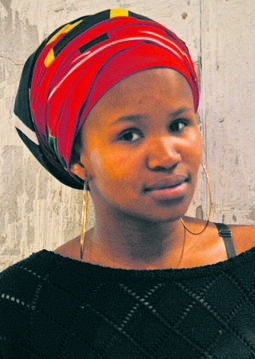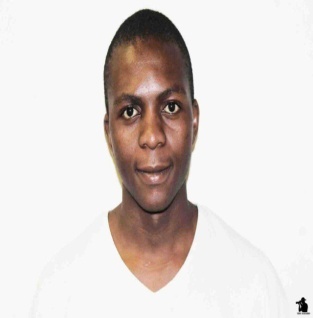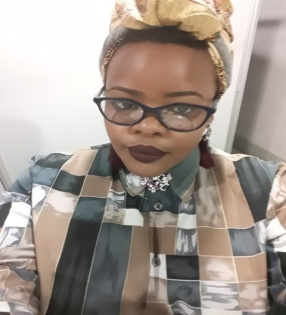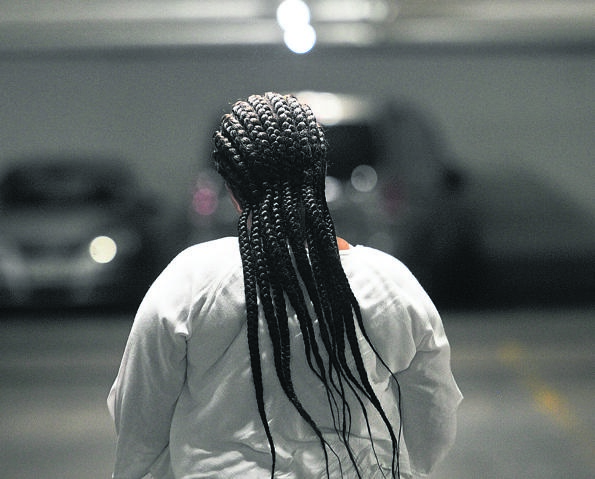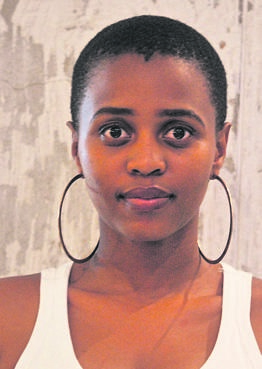They’re sent off to university with praise and prayers, but some students return home in caskets after taking their lives
In the past month, at least two students at the University of Johannesburg (UJ) have committed suicide - while another, at the University of the Witwatersrand (Wits), died after jumping off a building in Braamfontein. This week, a Pretoria University student also took his life.
City Press asked students who have attempted suicide what led them to feel so desperate that they felt they could not carry on living. Many spoke of academic pressure, problems at home, pre-existing mental health problems and the struggle to pay their fees as the reasons they tried to end it all.
Monalisa Kefile (20), a third-year education student at Wits University, has tried to commit suicide twice.
“In my first year, my mom and only parent passed on close to the end of the year. We buried her in December, and the following year I had to come back to Wits. I had passed very well, but I didn’t have funding,” she said.
“I came back to campus early to try to get funding. I went to student leaders and university structures to ask for help, and at every door I would have to retell the story of why I had no funding. Some would ask: If your mum passed on in November, why didn’t she pay during the course of the year before she died?”
After obtaining funding from the National Student Financial Aid Scheme for her second year, she began to feel the pressure to do well academically so as not to lose it. Without her mother’s support, she began to flounder.
Kefile attempted suicide in May this year “after being tired, sleeping a lot, missing classes and having a lot of suicidal thoughts”.
“So, I decided to take a lift to the 14th floor of my building after jokingly discussing with my partner ways to commit suicide. I just said I was going to the bathroom, and I took a lift to the 14th floor, stood on the edge and tried jumping,” she said.
“My partner noticed I had been gone for long and followed me, only to find me on the 14th floor. I asked her to look away. Another guy from our building came and pulled me away.”
After a spell in a clinic for depression, Kefile returned to her residence, where another student took his own life by doing exactly what she had planned.
“I just remember thinking: ‘Wow, I am really happy for him because he got the peace he had been longing for.’”
She returned to the clinic, where she attempted to overdose on her medication.
“After two suicide attempts, I think I am clearly not going anywhere. A support structure is required. At university we don’t have academic policies; they don’t give you any concessions for depression,” she said.
“When I heard about the Wits girl who jumped last week it broke my heart because I wish she had known that there was someone who knew what she was going through and that she had received the help she needed.”
Kefile is grateful for her supportive grandmother, her partner and her friends. Her lecturers, she said, “are very nice and very understanding, but the majority of students have to wait months to get a session at Wits’ Counselling Careers and Development Unit”.
“A lot of us come from very poor backgrounds, and getting to Wits is by the grace of God. There is great pressure, even from our peers, on what we wear, what hair we have. But we also feel pressure to exist daily – what will I eat, where will I get sanitary towels, how can I send money home,” she said.
“We need to stop giving students so much pressure without giving them the support.”
Desire Khoza (21) a Diploma in Accountancy student explained that his journey with mental health began after the passing of his biological parents and step parent.
“... I was writing my prelims at that time when my father passed and this affected me badly. But this is not where it started because I started having anger issues after the passing of my biological mom in 2008. Since then I would be very quick to react even when situations didn't need a reaction. Things got to their highest peak when I lost my step mom in 2017 and everything was just facing me as both my biological parents had passed and my step mother.
I was sad nearly all the time, got angry and stressed over most things and I liked or preferred being alone so I wouldn't have to talk to people or deal with the issues at hand.
I have had thoughts of dying or not living up till this time but have never attempted to take my own life. I have had coping mechanisms which included procrastinating. To cope with my condition I would sleep all the time and just not wanting to mix with people.
But I’d like to say I’m on the road to recovery. What helped me get better was time and above all keeping my Faith because even on days when I didn't want anything my faith kept me moving forward and recently having sessions with Psycad which is for Psychological Services has even helped me with anger issues I had.
Reading up about incidents of suicide in my campus and other Institutions has caused me to want to show and if possible walk the journey with most people who are going through what I went through even my music has become a mechanism I use to communicate a message of hope and a better path after getting through issues which affect the mental health of individuals.
I think it’s important for our Institutions loved ones and greater society to know that mental health happens to anyone as an individual and speaking up already solves 50% of the problem but the other 50% is just you having a way to deal with these problems and not doing it alone but doing that with others who have experienced something similar or have had a situation similar.
Keeping silence about the matter until it’s too extreme to deal with is also another problem which most people encounter and I also had the same problem but baby steps lead to progress and improving self day by day.
Simanye Tina Mpengesi, (24)
“I tried to commit suicide four times”
I first discovered I have a mental health issue, in high school and I fell into a depressive state when I was in grade 9. I had already written a suicide letter and I just wanted to die, it was not something I could explain, how can a 14 year old find the words to express how and why life is just suffocating? I went to the school councilor, after weeks of going to school and closing myself in my room, with very little human contact, she referred me to a psychologist, and that is the first time I was told I have clinical depression, it was always a part of my life after that but I didn't understand the symptoms until I went to University.
I then did my first year at the University of Free State where I studied towards a BSc in Biochemistry, I had an amazing life in Bloemfontein but I had no passion for what I was studying, and that was the trigger for my worst depressive episode to date, I tried to commit suicide for the first time, I took about 3 handfuls of pills, I downed them with some wine mixed with a whole lot of vodka, I always had these available cause they were my coping mechanisms, I couldn't sleep without the pills (still can't) and I couldn't fake happiness without being slightly intoxicated, that's the closest I've ever gotten to dying, it was painful physically but I won't lie, I couldn't wait to just go unconscious and die, the doctors did the things, and I survived.
I was almost admitted to a psychiatric hospital but I managed to convince the psychologist that I didn't need to meet a psychiatrist, and he said I could be discharged, the following months were a nightmare for those around me, I was irritable, I had constant panic attacks, I had anxiety issues, I was emotionally unstable, and my mother came to fetch me in October 2013, she refused to take me back to Bloemfontein as she preferred I be closer to her, 2014 I moved to Walter Sisulu University NMD campus, I did my first year in BSc Computer Science, I excelled socially, academically, culturally, I integrated quite well so mentally I was okay, never 100% but surviving, in 2015 I had a relapse, triggered by a lot of personal things that I went through, one thing about depression is, it makes it very easy to believe you're worthless, no matter how hard everyone tries to convince you that you aren't, so it takes one unkind word to make you lose every hold you thought you had on yourself, so 2015, I was eight months pregnant and I relapsed and tried to kill myself, I was chilling with my friends, laughing, having an actual great time, 5 minutes after they left all his unkind words flooded my mind and I just downed about two handful of pills, but with water this time cause I had stopped drinking, my friends came with the security guards at res and they took me to the hospital. My family was devastated and I was an empty shell of who I used to be but by then I had learned how to smile and laugh like I'm "normal," I never really recovered and in April 2016 I decided to end my life, again so I downed a bottle of bleach, I was rushed to the hospital and that's when I was put on antidepressants for the first time, I didn't succeed, from then onwards I have been on and off anti-depressants.
At the end of 2016 I applied for an admin job at the SAPS due to financial difficulties at home and I got it, I quit school and I am now a call centre operator at 10111 I still struggle, I won't lie, no day is ever the same as the one before but I am coping, and I have learned that honesty with one self is the best way to live and cope living with depression, which I have since learned is a complex mix between psychiatric and psychological issues, in my years of struggling with it I've been trying to study the scientific side of it but it's a bit complex. I believe that if young people could learn to be honest about what they are going through, about their feelings, learn that it is okay to not be okay, and it's a cause of concern when you're constantly not okay, if people could understand that stress is not an adult thing and psychotherapy is not taboo, it doesn't mean your life is over I guess what I'm trying to say is let people be sensitized about mental health issues so that they know it's not demon possession of bad spirits or ancestors turning their backs on you, it's just an illness that can be treated.
Working has helped me in a way that it's much less pressure for me and I can take leave and take time to go home, be one with nature, spend time with my baby and connect with my spirit, then I can go back to work a bit more refreshed My family and friends have also grown to understand my illness and they can easily spot when I'm not okay But one thing people need to know is that depression doesn't have a face, it lives in the most capable and the happiest of people, it dresses up, it wears make up, it smiles, it laughs and chokes you when you're all alone, so it's important to check in with your loved ones.
Ntokozo Hlatswayo* (20), a second-year accounting student at UJ, has “tried to commit suicide three times”.
Financial pressure and an absent father caused her to sink into depression and anxiety, she said.
“Everything I used to do academically was to impress my father. Throughout school I would get awards and distinctions. When I got accepted at varsity he changed his tune, saying he wouldn’t be able to fund me,” she said.
“This guy was working. I am his only child and I didn’t understand. I had been a good girl, well behaved and had no child.
“I realised in my second year that I couldn’t view my results because I owed fees, and I was scared I would be chased out of university. That same year, he had this big wedding. He knows that my mom and I can barely afford transport.”
Nkosi then began feeling like she was a burden on her uncle, who was paying her fees.
“I do not love accounting. I just saw the conditions at home and thought this would be a better way out,” she said.
She tried to overdose on medication, but survived.
“Now I am just living for my mom. I wish we could have a normal life, to just stress about academics and nothing else,” she said.
Although she is grateful for understanding and supportive friends, Nkosi says she is often tearful, “especially around month end, when I see parents taking care of their kids”.
“I remember asking [my father] for food this one month and they were kicking me out of res, and he told me he has no money, so what should he do.
“I then logged on to Facebook, only to find him eating out with his wife, and I thought: Wow, I could have just used R300 for food.”
Nkosi says she wishes others knew that “when you try ending your life it’s not because you are spoilt or wanting attention. It’s something you can’t control.”
*Not her real name
Luthando Nkomo (22), a law student at the University of KwaZulu-Natal, says she has “ongoing suicidal thoughts and I have tried numerous times to take my life”.
“While I was still a student at Wits, I suffered from continuous headaches. Eventually, my aunt and uncle took me to the doctor. My doctor then referred me to a psychologist,” she said.
“I don’t think I considered myself depressed, but I knew I was not 100% happy. Coming to Wits was a way to run away from home. I had a rocky relationship with my dad, and I needed to get away.”
She was admitted to hospital for depression and was forced to confront her past trauma.
“I had to deal with my paternal grandparents’ deaths, my mother’s death, my uncle’s death and everything else in between,” she said.
“I did try [to overdose], but nothing happened. I always just woke up in the morning.”
Nkomo says she “can’t say” she is better, but this year she “took a decision to put myself first in everything and anything”.
“At first it was really hard, but I have learnt to love myself. I protect my peace and I protect my space. I have fewer episodes,” she says.
Qaqamba Mtebele (21), a third-year politics student at Wits, who has “tried to commit suicide three times”, has begun a support group for students dealing with mental health issues.
“Universities close their doors after 5pm and there are no structures to help students after hours, except for student leaders or house mothers,” said the student, who also suffers from depression.
“We are trying to bridge the gap between what is offered on campus and what is offered to students in off-campus residences.”
Mtebele said universities can be isolating, a place where students find themselves with no community to confide in.
“We should discuss why we as students give up so easily. I sometimes don’t attend classes for two weeks and, fortunately, I have a community that helps me bounce back. So, we are trying to provide that kind of space for students at large,” she said.
“We also communicate what structures are available. We need more support, especially in times closer to exams.
“There is something happening in this generation of technology. We are way more depressed and more sensitive.”
If you need help, don’t hesitate to contact Suicide Crisis Line on 0800 567 567, Sadag Mental Health Line on 011 234 4837 or 24hr Helpline on 0800 12 13 14
‘‘When I heard about the Wits girl who jumped last week it broke my heart because I wish she had known that there was someone who knew what she was going through and that she had received the help she needed.
Are varsities doing enough to assist students battling depression? SMS us on 35697 using the keyword SUICIDE and tell us what you think. Please include your name and province. SMSes cost R1.50. By participating, you consent to receiving occasional marketing material
| |||||||||||||
| |||||||||||||




 Publications
Publications
 Partners
Partners




